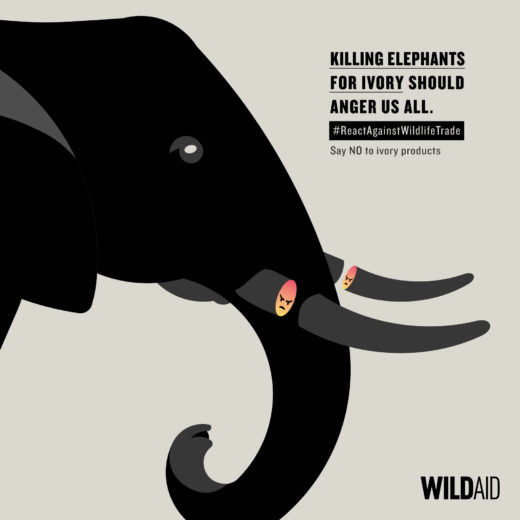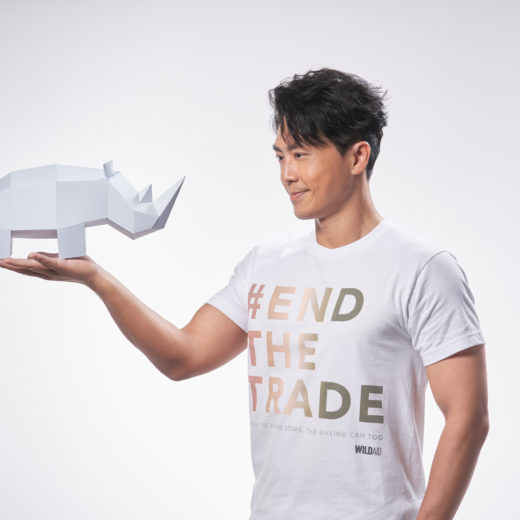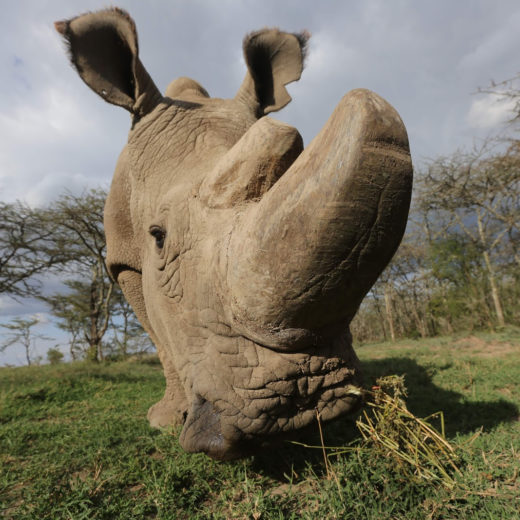


To mark a decade since Javan rhinos disappeared from Vietnam, CHANGE VN and WildAid are urging the Vietnamese general public to commit to ending the use and trade of rhino horn. Our campaign urges consumers to speak up about the issue of rhino horn consumption in Vietnam and to show the world Vietnam cares about wildlife.
Vietnam’s last Javan rhino was poached in Cat Tien National Park in April 2010. A large female, estimated to be between 15 -25 years old was shot and killed for her horn.
Javan rhinos were once common throughout much of lowland Vietnam, but now only one small population of 40-60 remains in Ujung Kulon National Park in Java, Indonesia. The critically endangered Javan rhino are one of the smallest rhino species, weighing around 2 – 5,000 pounds, and standing up to 5.8 feet tall.
The extinction of wild Javan rhino in Vietnam has impacted the country profoundly and can be likened to suddenly losing the letter ‘R’ from the English alphabet. The new campaign Illustrates to the Vietnamese public how this loss would forever change lives.
Without the letters T and G (from ‘Te Giac’, rhino in Vietnamese), we would lose many of the words we use to communicate and describe everyday things. In Vietnam, street food vendors wouldn’t be able to shout out their familiar signature dishes such as Bánh chu’ng (rice cake) or Bánh giò (rice dumpling roll).


Although rhino horn has been banned for 25 years as a traditional medicine in China, consumption has surged recently as well as in Vietnam, where it is promoted as a purported cancer cure, general health tonic and hangover cure. Primarily composed of keratin, the same protein found in human hair and fingernails, rhino horn has no known unique medicinal properties.
This consumer demand in China and Vietnam for rhino horn has fueled the poaching industry and in the past 40 years, the world has lost 95% of its rhinos in Africa and Asia. To address demand for rhino horn, WildAid and CHANGE VN’s campaign to debunk the myths about rhino horn’s curative properties has seen a 70% change in public awareness on this since its inception. In partnership with the Ho Chi Minh City Health Department, we have produced messages with traditional medicine doctors speaking out against the use of rhino horn. We brought campaign ambassadors on trips to Kenya to learn about the threats facing rhinos and to meet the world’s last remaining northern white rhinos as part of TV programs to raise broader awareness. Additionally, 100 top Vietnamese CEOs have signed our pledge never to buy, use or sell rhino horn.
You can learn more about rhino poaching by watching our recent WildAid Live webisode and our Poaching Steals from Us All campaign.


Stay in touch and get the latest WildAid updates.
SIGN UP


